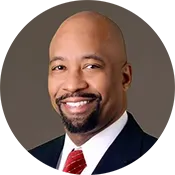Change and Uncertainty in Uncertain Times
In an economic environment marked by inflation, housing instability, and rising cost of living, the pressure on military households is real. Add to that the ongoing conversations about staff reductions, adjustments in military benefits, and shifting global commitments, and it’s clear that uncertainty isn’t a passing phase; it’s the current climate. While planning for the unforeseen is never easy—none of us has a crystal ball—strategic preparation and personal organization can turn uncertainty into opportunity.
For Active-Duty Service Members, periods of uncertainty can bring challenges that extend well beyond daily responsibilities. These moments often prompt critical evaluations of re-enlistment decisions, financial readiness, family considerations, and long-term educational and career goals.
With recent developments in U.S. government affairs—ranging from budgetary gridlock to discussions of further spending cuts—service members and their families are once again facing the weight of the unknown. With the right mindset, challenges can be transformed into valuable experiences that propel professional and personal growth.
The key lies in controlling what we can: building financial resilience, pursuing educational goals even while serving, and ensuring that our families are looped into contingency plans. Consider taking advantage of every available resource even if your ETS feels far off:
- Tuition Assistance
- VA Education Benefits
- Military Preferred Pricing of $250 per credit hour*
- Transition counseling from Bellevue’s Military-Veteran Services Team
You can reach us here at va@bellevue.edu.
Because when change arrives, those who have prepared are the ones who are best positioned to lead through it.
Change in the military is inevitable. The Air Force once adopted the adage, “Flexibility is the Key to Airpower,” a principle that applied not only to operations but also to personal resilience. During force reductions, I witnessed fellow Airmen, officers and enlisted, navigate the uncertainty with a range of emotions. Some were caught off guard, while others had proactively prepared for the transition, securing degrees, certifications, and even new careers before their final out-processing date.
Those who planned ahead—pursuing their education, strengthening their financial position, and building a solid foundation for post-military careers—faced the transition with confidence and optimism. Their foresight enabled them to step into the next chapter fully prepared, even if it arrived sooner than expected.
Coming from a military background in signals and intelligence, the transition into cybersecurity has felt like a natural next step. The focus on identifying threat actors, staying ahead of attacks, and analyzing patterns mirrors the kind of work I did in the service. The hands-on labs and Cyber League practice give that same mission-driven feel, like you're always preparing for real-world scenarios. There's a strong element of working through puzzles and problem-solving under pressure, which really connects with the way I’ve been trained to think and operate.
– Damone Scott, Veteran, current student, BS in Cybersecurity
As you look ahead, ask yourself: Am I ready for what comes next? Let Bellevue University help bridge the gap between your professional aspirations and educational goals. Uncertainty is inevitable, but preparation is within your control. Take advantage of a free credit evaluation to assess your academic standing and arm yourself with the knowledge and credentials to thrive—both in uniform and beyond your service commitment.
~ We’re for you

From the Director's Desk
Stan Hawkins attended the University of Central Missouri as a student-athlete and went on to earn a B.S. in Management from National American University and an A.A.S. in Communications from the Community College of the Air Force. In 1990, Stan joined the United States Air Force and worked in USSTRATCOM, AFSOC, CENTAF, the NSA, and DIA. He retired from the USAF in 2010 as an Electronic Intelligence/Information warfare/Psychological Operations analyst. After retirement, Stan spent a year working for Lockheed Martin as a satellite payload operator/intelligence analyst at Buckley AFB, Colo. Stan began working in higher education in 2011 at National American University as a Director of Admissions. He joined Bellevue University in 2020 as Assistant Director of Military Programs and became Director of Government Operations in 2021. He oversees Bellevue's Military Programs as part of the Strategic Partnerships portfolio of key markets at the University. He was also named a member of the board of directors in 2023 of New Visions Homeless Services, which serves the homeless and hungry of the Council Bluffs and Omaha area.
* Degree-seeking active-duty members of the U.S. Military, National Guard, Reserve, and Coast Guard, and their spouses, with proof of status, are eligible for a special tuition rate of $250 per credit hour for all undergraduate, certificate, and certificate of completion programs as they work toward their degree. Not able to be combined with other special rates, Guild or Campus@Work funding. View individual degrees/programs for military preferred pricing information.
Popular Post-Military Career Options to Consider
- Business Administration
- Behavioral Science
- Computer Information Systems
- Criminal Justice
- Cybersecurity
- Intelligence and Security Studies
- Supply Chain and Logistics Management
Explore all Bellevue University Bachelor’s and Master’s Degree Options Today.
Here’s another helpful resource for you from the Military.com news service: 7 Ways Military Pay and Benefits Provide an Advantage in an Uncertain Economy.
VA Education Benefits Services
Contact the Military Veteran Services Team in the Military Veteran Services Center to speak to the VA Team:
Email: va@bellevue.edu
Phone: 1.402.557.7329, or 1.800.756.7920
VA Regional Office for Nebraska: 1.888.442.4551
Navigating the VA educational benefits requirements can be daunting. The Military Veteran Services Team at Bellevue University is here to help you through that process.
The Military Veteran Services Team helps with:
- VA education benefits
- Advising - over the phone or in person at the MVSC
- Certification of enrollment
- Arranging for tutorial assistance
- Resources for part-time work-study employment
- Special Veteran programs and services as needed
Military-Veteran related resources we think you'll like.
Life After the Military: What’s Next
Attention Veterans: The Rudisill Decision and Your Benefits
Education Benefits for Military Spouses
Ready to take the next step?
Explore Bellevue University's Military Preferred Pricing degree programs today!
Learn More








